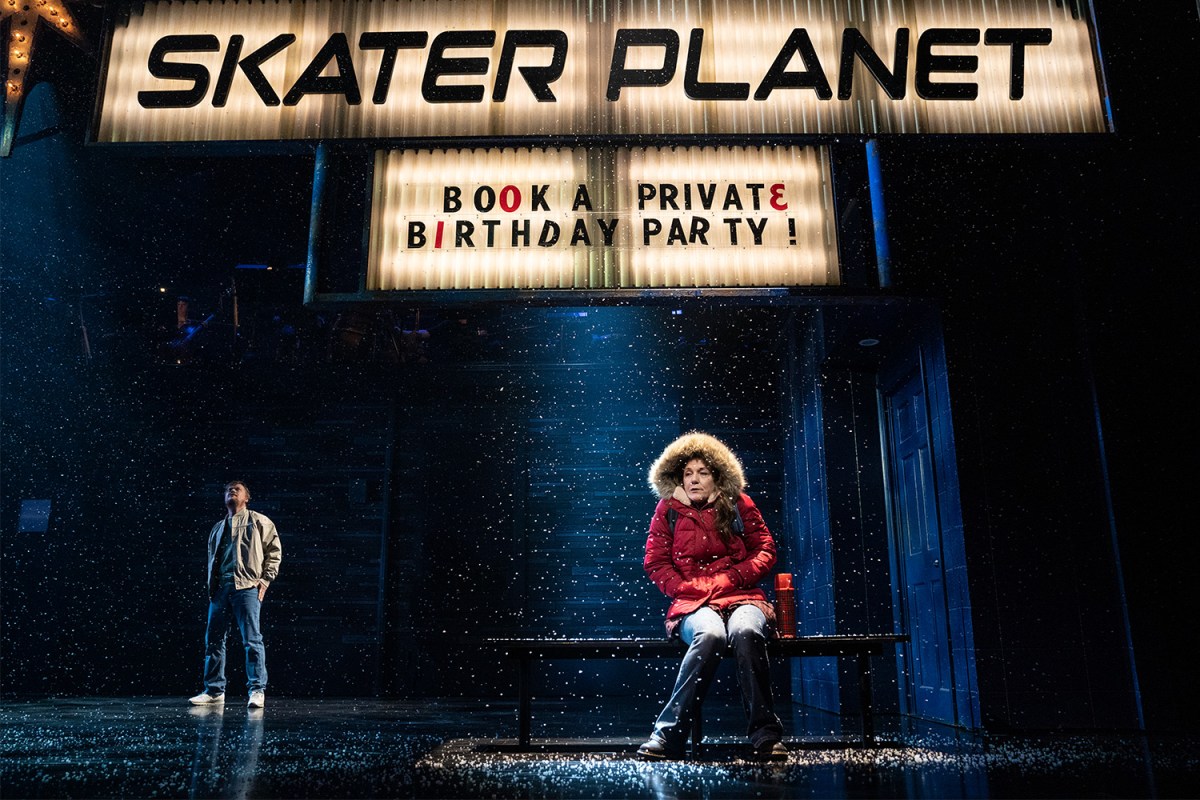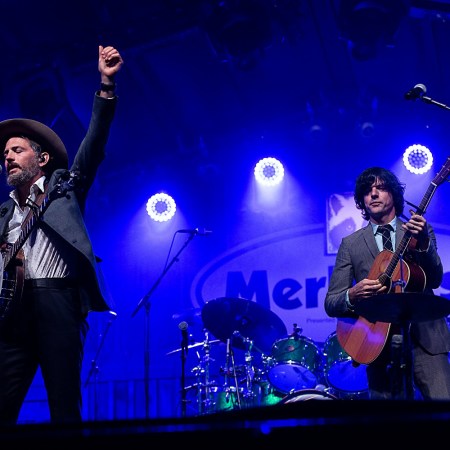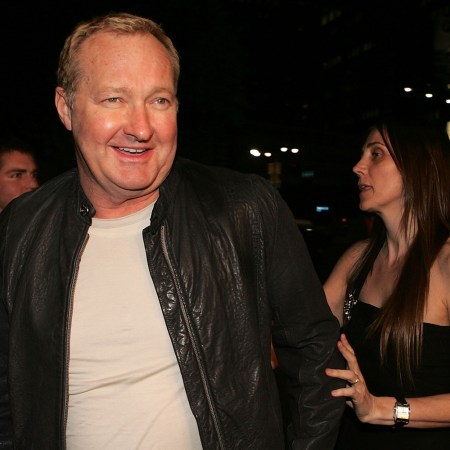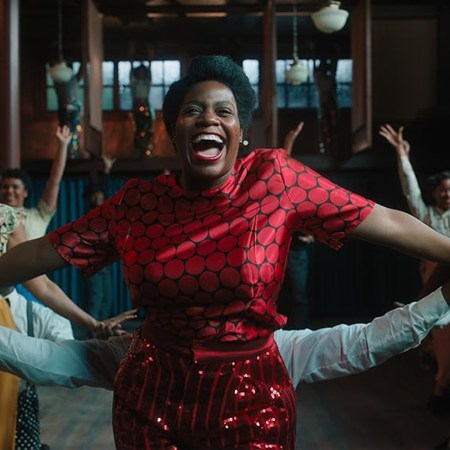I visit New York City once or twice a year, and when I do, my main objective is to pack in as much theater as possible. That’s not hyperbole. During a trip in December 2022, my flight landed in Newark at 5:09 p.m. on a Friday. My wife and I rushed to our hotel downtown, tossed our bags in the room, hoofed it up to Times Square and made it to the TKTS booth, where you can get same-day discount tickets, in time to pick an 8 p.m. show. We settled on a musical called Kimberly Akimbo. What was it about? I wasn’t entirely sure, and I hadn’t heard a ton of buzz about it, but the reviews were great and it was highly recommended on a theater podcast I listen to.
When the curtain fell two and a half hours later, my wife and I looked at each other, laughed at the tears streaking both of our faces, then jumped to our feet with the rest of the audience. It was the kind of standing ovation that you dream about: not obligatory, as it’s woefully become in the modern theatrical landscape, a feeling of we’re all clapping because we paid $200 a ticket; instead, it was applause (and whistling, and cheering) that felt truly spontaneous, joyous, real.
Kimberly Akimbo was the best performance we saw during that three-show weekend (better than the heralded return of Lea Michele in Funny Girl). Since then, every single person who has taken my recommendation and gone to see this little-musical-that-could has been similarly flabbergasted at the power of a show they had previously heard little to nothing about. Here’s the most recent review I got from someone, from this past December, in its full, unedited text form: “Dude we just saw Kimberly Akimbo and cried like babies the whole time it was so insanely good!!!!!!!!!!!!!!!!!” (Don’t blame me for the 17 exclamation marks — that’s just how strongly they felt.)
Despite strong word of mouth, a glowing review from Jesse Green of The New York Times, and five Tony Awards (including Best Musical), it was announced last week that Kimberly Akimbo will play its final performance on April 28, after a year-and-a-half run of 612 regular performances. If you will be in New York City between now and then, and you haven’t seen this rare gem of a musical, you absolutely must get a ticket — not just because it’s an unexpected triumph that leaves so many theatergoers overwhelmed with emotion that mascara-smudged selfies are regularly reposted on the musical’s Instagram Stories, but because the show is part of a dying breed on Broadway. It’s not a movie adaptation, headlined by A-list stars, a jukebox show stuffed with pop songs or a tried-and-true revival. It’s an original musical with songs and a story you’ve never heard before, and it’s one of the best I’ve ever seen in my entire life.
If Stephen Sondheim Taught Us Anything, It’s That Mentors Matter
The student of Oscar Hammerstein became the teacher of Jonathan Larson, Lin-Manuel Miranda and countless othersI called up Peter Filichia, a longtime theater critic, author and playwright whose reviews on the BroadwayRadio show “This Week on Broadway” influenced my decision to see Kimberly Akimbo, and asked if Tony Awards, rave reviews and word of mouth aren’t enough for a musical to survive on Broadway anymore. Do shows need a pop culture hook to survive?
“Figures don’t lie. It’s obviously not enough,” Filichia said, talking about Kimberly Akimbo specifically. “I think you could bring 50 of your friends to any given performance and everybody would be happily accommodated. And let us not forget, it’s in the third-smallest Broadway theater. So as a result, it’s supply and demand: they have the supply of seats, but the demand just isn’t there to fill it.”
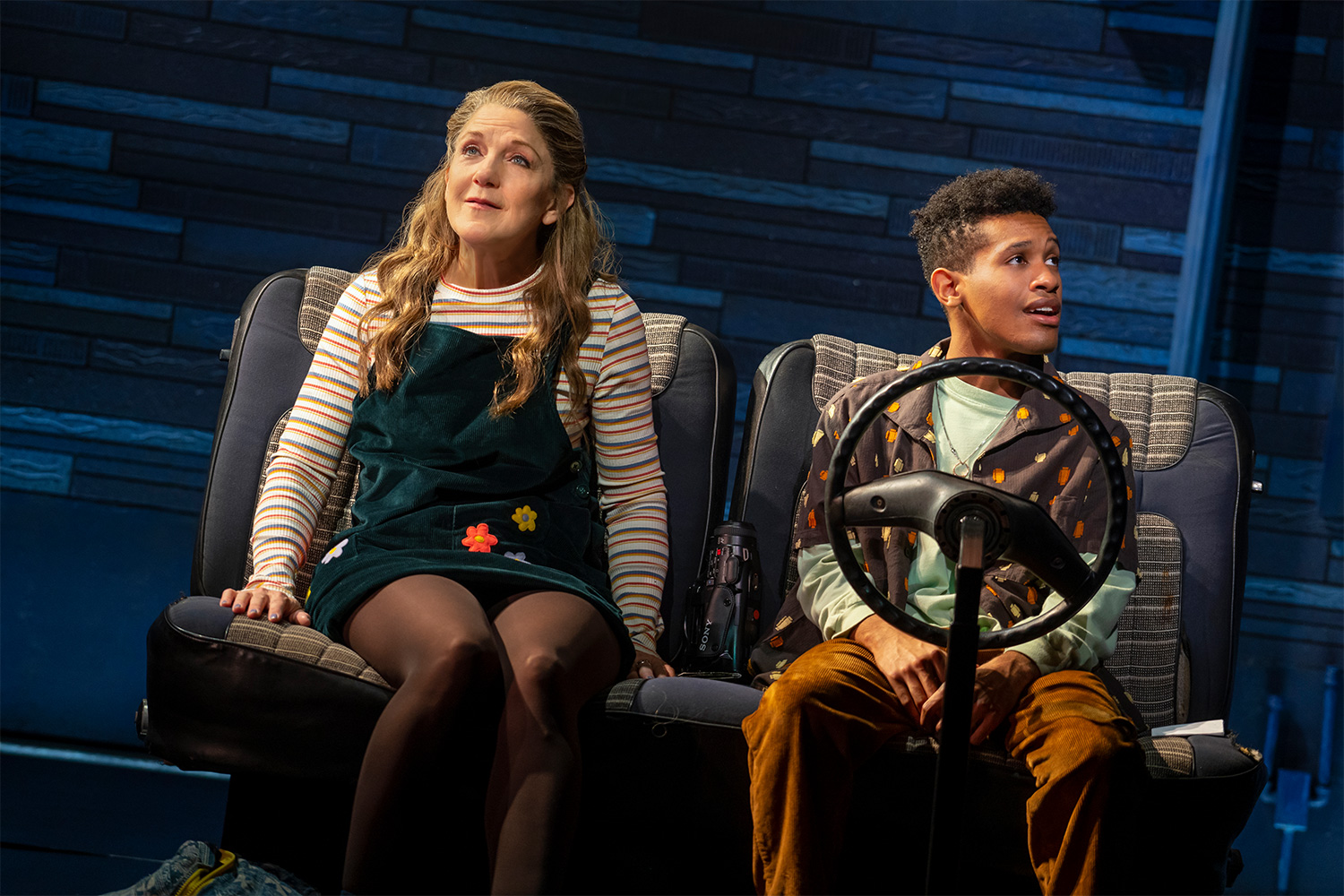
Part of the problem could be that the elevator pitch for the musical isn’t exactly sizzling. The musical follows Kimberly Levaco (played by the singular Victoria Clark), a high schooler who looks like a grandmother because of a rare disease that causes her to age much faster than normal. She’s about to hit her 16th birthday, which also happens to be the normal life expectancy for someone with her condition. That neither stops her from trying to make friends at school (and succeeding with Seth Weetis, played by Justin Cooley, a nerd who loves anagrams, turning Kimberly’s name into “Cleverly Akimbo”), nor stops her family from continuing down their own destructive paths, including amoral Aunt Debra (the face-melting Bonnie Milligan) who wants to rope Kimberly and her friends into a check fraud scheme. But maybe that scheme will also help Kimmy live what life she has left to the fullest.
See what I mean? It’s not a one-liner like “It’s about the Founding Fathers, but they rap!” or “It’s like The Wizard of Oz, but about the Wicked Witch!”
Filichia admits that the name “Kimberly Akimbo” isn’t doing the show any favors, either. “It is an odd title,” he said, “and I do believe that people would just gloss over it because it’s not a familiar title to them.”
That seems to be the selling point of many Broadway shows these days: familiarity. Looking at the upcoming slate of musicals this spring, four are based on books or movies (Days of Wine and Roses, The Notebook, Water for Elephants, The Outsiders), two are jukebox musicals (Hell’s Kitchen, Alicia Keys; The Heart of Rock and Roll, Huey Lewis and the News) and three are revivals (The Wiz, The Who’s Tommy, Cabaret, the latter starring Eddie Redmayne). Only two are original musicals (Suffs, Lempicka).
Looking backwards at the nine new musicals that debuted in the same season as Kimberly Akimbo, the only two that haven’t announced closing dates are & Juliet (a jukebox musical with no Tony Awards, but familiar songs like “Oops!…I Did It Again”) and A Beautiful Noise (a Neil Diamond jukebox musical without even a single Tony nomination). But as Filichia pointed out, despite the lack of accolades, the latter has something Kimberly does not: “A Beautiful Noise actually has on its marquee as a selling point: ‘The songs that you know.’ That’s a direct quote.”
“The point is: you don’t know what you’re getting when you’re dealing with an original score,” he added, “and that seems to be a liability today, for better or worse.”
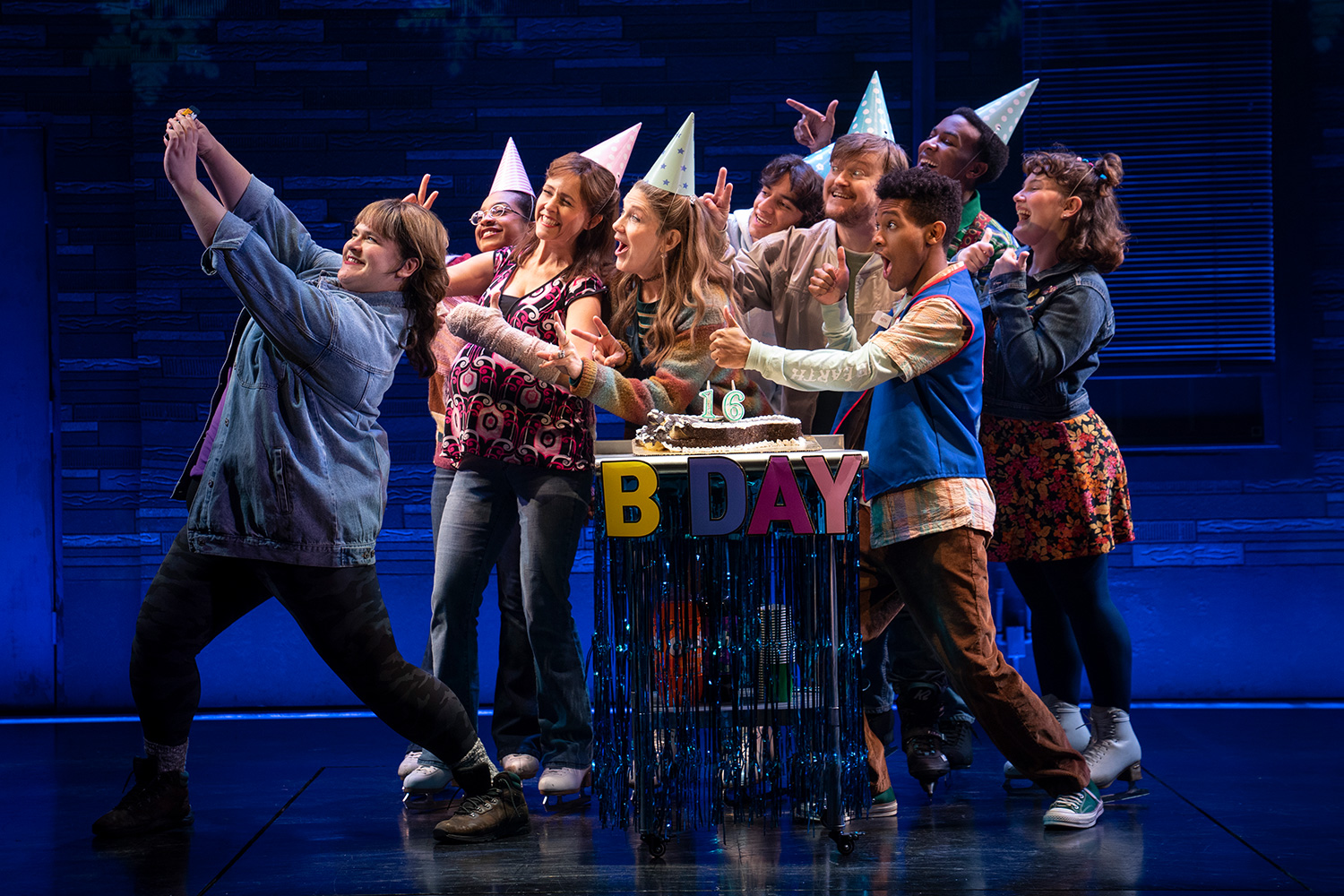
The problem here, if ticket buyers stick with the familiar instead of taking a chance on Kimberly Akimbo, is that they’ll miss a spunky, invigorating and deeply touching — sometimes all at the same time — score by Jeanine Tesori (“one of our most gifted composers,” Filichia added), paired with impossibly clever lyrics by David Lindsay-Abaire (who also wrote the book, as well as the original play on which this musical is based). They’ll also miss out on a story that has many of the tropes you expect from a high school and family saga — the struggle to fit in, the dysfunctional family, the disappointed mom, the deadbeat dad and the overprotective dad — but scatters and rearranges those tropes in such surprising ways that you’ll find yourself continuously caught off guard in the best possible way. There’s no need for the classic theater behavior of knowingly sighing or forcing a laugh to show that, yes, you understood the meaning of the moment. The songs here will pluck all the laughs and tears you have to give, whether you’re ready or not.
In Jesse Green’s review in the Times, published in November of 2022, he didn’t have much hope for Kimberly Akimbo’s staying power among the “tourist-bait extravaganzas,” but he also said the value of the musical cannot be judged “by how long it runs.” For a musical without a Josh Groban, Daniel Radcliffe or shoehorned Top 40 tune, 612 performances is nothing to sniff at.
One of the lyrics that’s caught on from this musical, from the song “Great Adventure,” is “No one gets a second time around.” I can’t convince everyone reading this to spend their limited time (and money) always supporting original musicals that they know little to nothing about. If you want to see Marty McFly in a DeLorean on Broadway, go for it. If you want to see someone doing a Michael Jackson impersonation, be my guest. But at least see this one original musical before it’s gone. Once you do, I have a feeling you’ll be more open to the unfamiliar in the future.
And who knows? Maybe original musicals will eventually make a comeback on Broadway. Or maybe Kimberly Akimbo will simply get a splashy revival in 20 years. After all, by then it will have moved into the “revival” category, which seems like a safer bet.
Update – January 17, 2024: A quote from Mr. Filichia about the closing of Kimberly Akimbo was removed as it could be misinterpreted.
This article was featured in the InsideHook newsletter. Sign up now.
